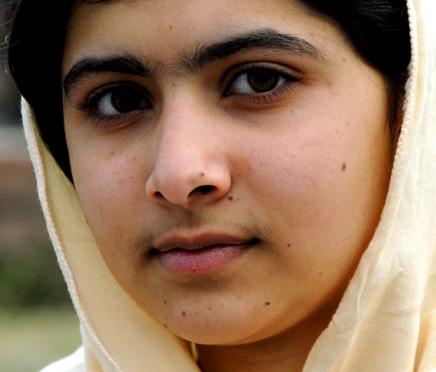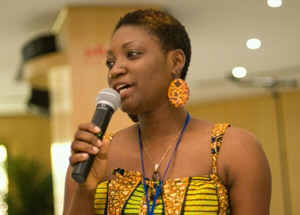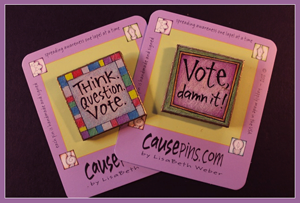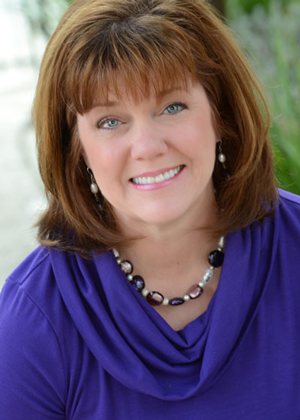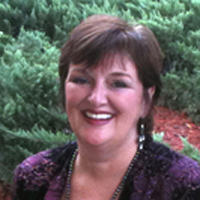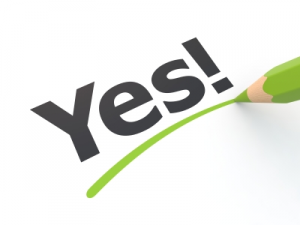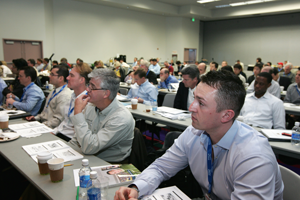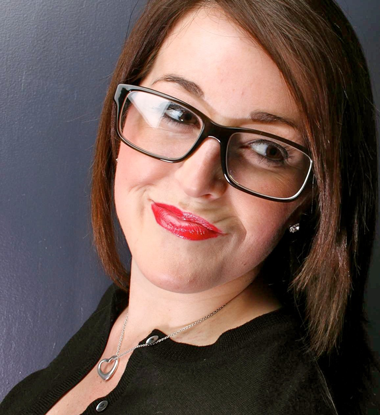Connect with Gloria!
Bring Gloria to Speak
Featured Upcoming Event
Wednesday, Oct. 2-Nov. 13, 2013 Gloria will teach a 6-week online course "9 Practical Leadership Power Tools to Advance Your Career". This is a Take The Lead event in partnership with Arizona State University Online. Participants will receive a certificate to enhance their resumes along with practical skills and understanding of power dynamics in the workplace. Don't miss this opportunity and register today!
More events here.
Buy Gloria’s Latest Book
-
-
-
Accolades

"With heartfelt encouragement ... (including strategies for including men in feminist causes), this guide is accessible to all."
~Publisher's Weekly
 "Female Writers Kicking Up Literary Dust"
"Female Writers Kicking Up Literary Dust"
~Women's e-News"Top 30 Political Mom Bloggers"
~The Stir"Gift Ideas for the Change Agents on Your List"
~Claire Mysko"Feminist Reading List"
~Deep Muck Big Rake"5 Must-Read Books for Women"
~Hello LadiesRead additional Media Buzz here.
-
Recent Posts
Recent Comments
- Gloria Feldt; An Inspiring Woman » CreativeBizHub on She’s Doing It: LisaBeth Weber Pins Pack Message Wallop
- Gloria Feldt on Stuck? Meet Jake and the Power of Letting Go to Move Forward
- Leslie on Stuck? Meet Jake and the Power of Letting Go to Move Forward
- Liz @ Creative Liberty on Sandberg: Are You Bossy or Merely Showing Leadership Skills?
- Gloria Feldt on Sandberg: Are You Bossy or Merely Showing Leadership Skills?
Categories
Listen to My Podcasts

Stacey Gualandi of The Women's Eye interviewed me about--what else--women and power.
Shelley Irwin of NPR asks me why I believe that no one is holding women back but themselves.
Suzanne Braun Levine and I discuss No Excuses on The Fiesty Side of Fifty on Blog Talk Radio.
Nicole Sanders talks to me about No Excuses on her show Radio or Not, on Progressive Talk Radio.
Dennis Lambert of KJZZ's "Morning Edition asks me why I wrote No Excuses.
Talking to Terry Hernon MacDonald about No Excuses over at Single Women Rule.
Discussing No Excuses with Joe Conason on Book Talk Radio.
Talking with Amanda Marcotte on RH Reality Check about women and power.
See Jane Do interview, encouraging women to step into positions of power and leadership – now!
Speaking with MadamaAmbi about No Excuses
Women's Relationship to Power and Leadership
Employ Every MediumWomen’s History Month: The Many Takes of Women in the Entertainment Industryby Gloria Feldt on March 27th, 2013in Employ Every Medium, Gender, Leadership, Power, Power Tools Making a box-office success movie or TV series without a woman in a sexualized or type-cast bimbo role has historically been hard to impossible. (Read “Leadership Fictions:Gender, Leadership, and the Media”, Take The Lead’s special report on how media influences women’s perceptions of themselves as leaders and others’ ideas about them for some shocking statistics.) That’s why women today who create media by producing, writing, and directing are of the utmost importance to creating the future of our choice. Some women in leading roles on and off screen—like Tina Fey, Amy Poehler, Lena Dunham, and Shonda Rhimes—use their writing to make women the protagonists of their stories. Their takes on what those roles mean to women and feminism, however, are quite diverse. Read the full article...{ Comments Off on Women’s History Month: The Many Takes of Women in the Entertainment Industry comments }
Malala Yousafzai: On International Women’s Day, Honoring A Fearless Leader at Just 15 Years Oldby Gloria Feldt on March 8th, 2013in Employ Every Medium, Leadership, No Excuses, Power, Power Tools Malala Yousafzai is living proof that leadership comes in all shapes and sizes, genders, ethnicities, nationalities, and ages. We usually think of history being made by people with some years on them, but this courageous young woman demonstrates that anyone of any age can be a history maker. In 2009, Yousafzai began sharing her stories under a pseudonym for the BBC. Yousafzai documented the drop in attendance of girls at her school after an increased concern over safety. Just after her blog ended, the Taliban temporarily banned women from going to jobs and to the market. In Pakistan her and her father received death threats in person, in newspapers, and online. Despite the dangers associated with reaching out to press, Yousafzai continued to talk to media to advocate equal education. She could be the poster child for No Excuses Power Tool #8: employ every medium [link]. In 2012, the young activist was shot by members of the Taliban in the Swat district of Pakistan, while returning home from school. Yousafzai was targeted after being recognized in Pakistan for advocating education for all girls. Even though Yousafzai was shot at point blank range, she lived to tell the tale. { 1 comments }
She’s Doing It: IntergenFem and You…Join In!by Gloria Feldt on January 23rd, 2013in Create a Movement, Define Your Own Terms, Employ Every Medium, Leadership, She's Doing It, Tell Your Story
Intergenerational feminism. Does it exist? Can we do a better job? Why does working together across differences (generation is just one of many, including race, class, gender, sexuality, ability) matter for the cultural and political goals feminists are looking to achieve? These conversations keep happening, and the idea for this TweetChat grew out of a great conversation that happened spontaneously on Twitter between @AndreaPlaid, @erintothemax, @ShelbyKnox, @StephHerold, @veronicaeye and @WentRogue. Along the way we picked up @GloriaFeldt and now we’re hoping to pick up YOU (yes, YOU are enthusiastically invited!) to join us for a broader conversation that is intended to be productive, solutions-oriented and totally helpful to your personal and professional endeavors to realize justice in this lifetime. Some of the themes to discuss:
Is there more that needs to be discussed? Good. That’s another reason for you to join, so you can bring it up. TweetChat is Thursday, Jan. 31. Use the hashtag #InterGenFem. #InterGenFem + YOU = Join In!Be there 2-3 p.m. and tell your friends. Read the full article...{ Comments Off on She’s Doing It: IntergenFem and You…Join In! comments }
She’s Doing It: Juliet Yaa Asantewaa Asante’s Media Leads African Women to Powerby Gloria Feldt on October 24th, 2012in Employ Every Medium, Inspiration, Leadership, No Excuses, Power Tools, She's Doing It
Gloria Feldt: When did you know you had the power to_____? Juliet Asante: I knew I had the power to change my world and make a difference when I, (as an African girl, at a time when not many people dared) was able to raise money to start my first television show; having started out with only a cell phone and absolutely no money or guidance. GF: Describe the moment or series of events that let you know you had the power to: JA: My first major event on my path was getting the part in an HBO movie that starred Omar Epps. “Deadly Voyage,” a true story based in Africa, was auditioned for by the ‘best’ in the industry… and I got the role I auditioned for. This gave me the confirmation and credibility I needed at the time to explore my talents. The second event I remember, was winning the writing competition to produce a road show for a product to Unilever, and producing this while in my final year of University in another city. I commuted for 8 hours between two cities in every 24 hours for my entire final year at school. I felt powerful. I felt my mental limitations drop away. I remember feeling like I could do it and I could see the world opening up to me. I also felt that my path was going to be a one of resistance, as I had already begun to see that in many ways, but I knew I’d find the strength to move on. I just knew…. GF: Tell a little about your background, your family and how you grew up, and what led you to your current work. Read the full article...{ 1 comments }
She’s Doing It: LisaBeth Weber Pins Pack Message Wallopby Gloria Feldt on September 26th, 2012in Employ Every Medium, Leadership, No Excuses, Power Tools, She's Doing It, Wear the Shirt
How do I know Gloria? Our paths were destined to cross, and they finally did back in 2004 at a campaign event in Pennsylvania. Having defined a mission of making a difference in the world over 20 years ago, I’ve always channeled my core beliefs into my work. It seems inevitable that my creativity and mission would manifest into a line of handmade pins for causes that began with a pin about CHOICE. As an artist and activist, I realized that an art-pin could be like a mini-billboard for people to ‘wear their heart on their lapel’, to spark conversation, and to effect change. Over the years, I developed cause pins for politics and voting, peace and social justice, women’s rights, the environment, animal rescue, and more. The pins found their way to many non-profit organizations that have utilized them for fundraising and awareness. Read the full article...{ 4 comments }
Flourish Over 50: Gloria and Susan Tolles Talk Texas Pasts and Flourishing Futuresby Gloria Feldt on June 22nd, 2012in Employ Every Medium, Know Your History, Leadership, No Excuses, She's Doing It
SUSAN TOLLES: Welcome to Flourish Over 50. I’m just so excited that you’re here, and I want to talk about your lifelong passion for really empowering women. GLORIA FELDT: I first had to empower myself. I didn’t start out knowing much about this power stuff. I grew up in small towns in Texas in the 1940-50s, where girls were not encouraged to get an education, have a career, or have real aspirations for themselves. I mean, my family actually did expect me to get educated, but only in order to be a better mother, a better mate, etc. So I really didn’t start out thinking that I had power and agency myself; I grew thinking that the agency was outside of myself. I had to learn by trial-and-error along the way, and I am still learning it. SUSAN TOLLES: Right, we all are. It’s always a work in progress. GLORIA FELDT: It is a work in progress. So I’ll give you the real quick rundown of what happened: I was a teen mom; I got pregnant, married my high school sweetheart when I was 15. I had three children, bing-bing-bing, and then I was 20 years old. I think it was the combination of maturity and the advent of the birth control pill where I just woke up. That was one defining moment. I realized two things: Firstly, I had three children, and although I had a husband who was earning a salary, I kept thinking, “What if I have to support these children?” I had no employable skills whatsoever. Secondly, I was starting to get a little bored and I realized that this life was not as much fun as I thought it was going to be. I, in fact, had a brain and I was eager to go to school. And so, I finished high school by correspondence, and then the birth control pill came along. It was that defining moment that allowed me to see that I could create a life for myself. I could plan. If I wanted to have more children, I could have them by my own choice at whatever time I wanted to. But if I didn’t want to have more, then I had that option, and it meant I could go to college. I would say that was the first big defining moment for me. There were a series of other moments. So I often ask people when I speak, “When did you know you had the power to _______?” SUSAN TOLLES: Hmm, great question. Read the full article...{ 1 comments }
She’s Doing It: Chicke Fitzgerald Has Solutionzby Gloria Feldt on June 20th, 2012in Employ Every Medium, Leadership, Power Tools, She's Doing It One of the best things about writing a book about women’s relationship with power is that I get to talk with so many interesting people about it. And since it seems that everyone is using my No Excuses Power Tool #8 – “Employ Every Medium” – by being the media these days, I have the opportunity to appear on many web-based radio shows, emanating from anywhere, and available for listening, often along with an accompanying blog post, at any time of the day or night. Media that simply could not have existed in years past. One example of that trend is an interview I did with Chicke Fitzgerald, founder of the business development consulting firm Solutionz and the Executive Girlfriends’ Group (EGG). EGG is a platform for executive women (both corporate and entrepreneurial). And it’s a ‘real world’ connection, not an electronic one, hosting a by invitation only conference call weekly, on Fridays from 4pm ET to 5:30pm ET. The website provides support to the group and allows the members to connect one on one, ask and answer questions, and to benefit from one another’s expertise. I caught up with Chicke for our interview on her cell phone. Read the full article...{ Comments Off on She’s Doing It: Chicke Fitzgerald Has Solutionz comments }
Leading With Intentionby Gloria Feldt on May 18th, 2012in Employ Every Medium, Leadership, No Excuses, Power Tools, Use What You've Got, Wear the Shirt
Years ago, as a teenage mother without a college education, one could only imagine that Gloria Feldt felt somewhat limited in career options. But with the right amount of optimism, the proper use of power and her penchant for saying “Yes” to every opportunity, Feldt paved her way to leadership success as the former president and CEO of Planned Parenthood. Now, after recently being listed as one of “America’s Top 200 Women Leaders, Legends, and Trailblazers” by Vanity Fair magazine, Feldt’s latest bestselling book “No Excuses: 9 Ways Women Can Change How We Think About Power” offers well-founded advice to other women. Womenetics: Vanity Fair named you one of “America’s Top 200 Women Leaders.” To what do you attribute your success as a leader? { Comments Off on Leading With Intention comments }
I’m Doing It: Wireless Activism for Social Changeby Gloria Feldt on May 9th, 2012in Employ Every Medium, Leadership, Power Tools, She's Doing It, Workplace Being an activist does not always mean being political. Recently, I served as the moderator for a panel of media innovators who discussed how wireless technology is bringing about social change.
The all-woman panel on “Wireless Activism”, presented by the Women’s Media Center, focused on how wireless tools are used by activists to create local and global transformation. (Click here to read the full article) Read the full article... { 2 comments }
She’s Doing It: Jen Nedeau and the Joy of Mediaby Gloria Feldt on March 14th, 2012in Carpe the Chaos, Employ Every Medium, Leadership, Power Tools, She's Doing It, Tell Your Story
Gloria Feldt: In No Excuses, I asked, “When did you know you had the power to_____?” What have you learned about your power to ______ during the past year or so? Jen Nedeau: When I spoke to you for the book, we talked about finding the “power source. ” For me, few experiences have been more profound in discovering my own source of power than the past three years I’ve spent in New York. Since moving here, I watched a company I once worked for go bankrupt, I’ve been robbed three times, lived with far too many random roommates and I had to stare down an army of cockroaches on a regular basis in my old apartment in the Lower East Side. I would definitely say that I had to employ Power Tool #5: Carpe the Chaos on a regular basis. But if the company I worked for hadn’t gone bankrupt, I probably would not have started my own consultancy and secured a variety of clients in the arts, media and non-profit worlds—proving to myself that I could make it on my own—before taking a job with a major magazine publisher. After two years of living here, I was able to move out of my cramped apartment in the Lower East Side and into a studio apartment, which I am glad to say is thus far, free of Manhattan’s favorite pests. All of these challenges, big and small, helped me learn that I have the power not only to survive life’s challenges, but succeed despite them. Now, at age 27, I can say that even a bit of struggle can reap big rewards. I am enjoying my life here, meeting amazing people and working on interesting projects, but more importantly, I know that no matter what happens, I have the ability to make it on my own. And independence, in any form, is one of the most empowering tools in the toolbox. GF: Was there a moment when you felt very powerful recently? Was there a moment when you felt powerless? { Comments Off on She’s Doing It: Jen Nedeau and the Joy of Media comments }
|

